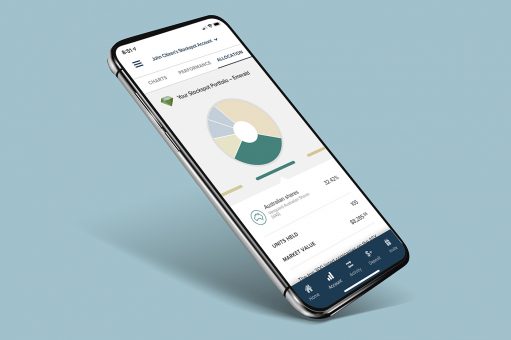Online trading platforms have exploded in recent years, greatly expanding access to the share market to the general public and creating a legion of retail investors.
We’re often asked what the difference is between what we do at Stockspot and online trading platforms.
The short answer is that, like with so many new online businesses, it is the same difference that existed in the offline world for decades.
Stockspot is an online investment advisor and works much like an offline investment advisor: we help clients to build investment portfolios that are suited to how much risk they want to take, then we manage those portfolios for them while they get on with living their lives.
The central difference between Stockspot and offline investment advisors is that we use technology to do the trading part, rebalancing portfolios as they drift away from the customer’s preset risk profile, rather than an individual performing that role. This is sometimes known as robo advice.
Online trading platforms are notably different, because they provide a portal for people to make their own investments, manage their own portfolios, do their own tax and decide their own risk.
In essence, they are just like the stockbrokers of old, but through technology, they can give access to the market to just about anyone with a phone and some cash, without the barriers of entry that previously kept people out.
What do online trading platforms do?
Online trading platforms have taken off in Australia and beyond because they allow the average punter access to the share market.
The platforms’ goal is to get people to trade shares, which is why they market directly to customers, spending lots of money on advertising and becoming highly visible in the process..
It works, too. Online trading platforms have been making a lot of revenue, and they make it primarily from brokerage on the trades made by their members.
Every time they provide access to the market for a user to buy or sell a share, they charge a small fee.
That doesn’t sound too bad – after all, they’re providing a service people want – but it adds up, and of course, the platform itself is heavily incentivised to keep its users trading.
The research, however, backs up the idea that regularly trading shares is a fools’ errand, and that the best way to grow wealth on the stock market is to set and forget.
An online trading platform – or, let’s be honest, an offline one like a traditional stockbroker or fund manager – isn’t going to tell you that.
If you look at the performance of retail investors on these platforms, you see that most don’t make money.
Indeed in Australia, some of them are legally compelled by government regulators to release data on how many of their clients actually made money, and surprise surprise, it shows that around 70-80% who lose money.
That’s a lot of people, and it’s taking place in a market that is gradually going up over time.
It’s not news, however: the same has also been true in the market among active investors and stock pickers for decades too, long before there was an app for it.
Why are robo advisors different?
Decades worth of evidence shows that buying and selling is the last thing that you should do in the market.
Our own philosophy here at Stockspot is formed around Modern Portfolio Theory, itself first devised in the 1950s and later given a Nobel Prize for Economics in the 1990s, which preaches time in the market, holding shares for the long haul, rarely trading and index funds.
Robo advisors can (and in our case, will) tell you this, because they don’t make money on brokerage, so have no incentive to make you want to trade more.
We don’t trade that much at all, only occasionally rebalancing your portfolio when it moves away from the stated risk profile.
In fact, as Stockspot charges a management fee on what you invest, our incentive is to grow your wealth over the long run.

How to make money on trading platforms?
The short answer is that making money on online trading platforms is really, really unlikely.
We recommend exchange traded funds (ETFs) that capture the entire market, so you get the benefits of owning the shares that make money all the time.
Recent research from July 2024 by Hendrik Bessembinder at Arizona State University analysed almost a century’s worth of US shares and found that only a sliver of the market makes money and that over half the shares had negative returns.
That’s because almost all the growth powering the market is coming from the top echelons of companies – Bessembinder found that 17 specific stocks had made over 5,000,000% compound growth! – while 51% were in the red over the longer term.
Index funds like ETFs allow an investor to gain a broad exposure across the whole market, so you capture the winners, who make enough money to counteract the losers.
As a way of picking stocks, it’s far more effective than trying to isolate who is going to win ahead of time, which tends to have far more to do with luck rather than judgement.
ETFs and index funds are why we can say that 90% of our clients who invested over a reasonable amount of time made profits rather than losses. That’s been consistent over the decade that we’ve been in business.
View our portfolios past performance and find out how we can help you reach your long term goals.
Disclaimer: Investment in financial products involves risk. Past performance of financial products is no assurance of future performance.
This article contains general advice only and does not take into account your financial circumstances, needs and objectives. Before making any decision based on this information, you should assess your own circumstances or seek advice from a financial adviser.

